
The Allure of Falmouth, Antigua and Barbuda
Nestled on the southern coast of Antigua, Falmouth is a quaint coastal town that offers an idyllic escape for those seeking a blend of history, culture, and natural beauty. The town is known for its stunning harbor, which serves as a haven for yachts and sailboats, making it a favorite spot for sailing enthusiasts from around the world. The blend of azure waters and lush greenery creates a picturesque backdrop that is sure to captivate any visitor. Falmouth is steeped in history, with landmarks such as the Nelson's Dockyard National Park, a UNESCO World Heritage Site, offering a glimpse into the island's colonial past. The Dockyard, named after Admiral Horatio Nelson, is the world's only Georgian-era dockyard still in operation. Walking through its cobblestone streets and exploring its well-preserved buildings is like stepping back in time. Apart from its historical sites, Falmouth is also a gateway to some of the island's most beautiful beaches. Pigeon Beach and Galleon Beach are just a short drive away, offering pristine sands and crystal-clear waters perfect for swimming, snorkeling, and sunbathing. The town's laid-back atmosphere is complemented by a variety of dining options, from local seafood shacks to upscale restaurants, ensuring that every palate is satisfied. Whether you're a history buff, a beach lover, or a sailing aficionado, Falmouth has something to offer everyone.
Local tips in Falmouth
- Visit Nelson's Dockyard National Park early in the morning to avoid crowds and enjoy a peaceful experience.
- Pigeon Beach is great for families with kids due to its calm waters and picnic facilities.
- If you're visiting in April, don't miss the Antigua Sailing Week, a world-renowned sailing event.
- Local seafood is a must-try; head to the nearby village of English Harbour for some of the best dining options.
- For the best panoramic views, hike up to Shirley Heights, especially on Sunday evenings when there's live music and a barbecue.
The Allure of Falmouth, Antigua and Barbuda
Nestled on the southern coast of Antigua, Falmouth is a quaint coastal town that offers an idyllic escape for those seeking a blend of history, culture, and natural beauty. The town is known for its stunning harbor, which serves as a haven for yachts and sailboats, making it a favorite spot for sailing enthusiasts from around the world. The blend of azure waters and lush greenery creates a picturesque backdrop that is sure to captivate any visitor. Falmouth is steeped in history, with landmarks such as the Nelson's Dockyard National Park, a UNESCO World Heritage Site, offering a glimpse into the island's colonial past. The Dockyard, named after Admiral Horatio Nelson, is the world's only Georgian-era dockyard still in operation. Walking through its cobblestone streets and exploring its well-preserved buildings is like stepping back in time. Apart from its historical sites, Falmouth is also a gateway to some of the island's most beautiful beaches. Pigeon Beach and Galleon Beach are just a short drive away, offering pristine sands and crystal-clear waters perfect for swimming, snorkeling, and sunbathing. The town's laid-back atmosphere is complemented by a variety of dining options, from local seafood shacks to upscale restaurants, ensuring that every palate is satisfied. Whether you're a history buff, a beach lover, or a sailing aficionado, Falmouth has something to offer everyone.
When is the best time to go to Falmouth?
Iconic landmarks you can’t miss
Heritage Quay Complex
Experience the vibrant Heritage Quay Complex in St. John's, where shopping, dining, and Caribbean culture come together for an unforgettable visit.
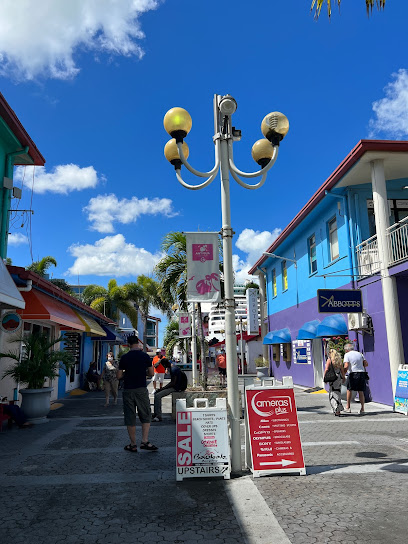
Nelson's Dockyard
Step back in time at this beautifully restored Georgian dockyard, a UNESCO World Heritage Site and working marina in Antigua's English Harbour.
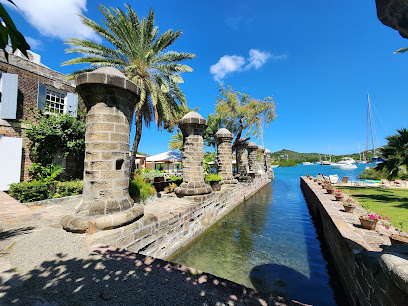
Redcliffe Quay
Discover the charm of Redcliffe Quay, St. John's premier shopping destination, where local crafts meet Caribbean culture in a picturesque setting.
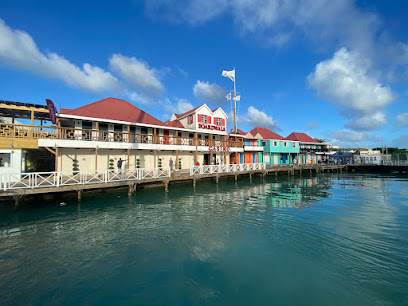
Shirley Heights Lookout
Experience breathtaking views, rich history, and a vibrant atmosphere at Shirley Heights Lookout in Antigua, the perfect spot for relaxation and exploration.
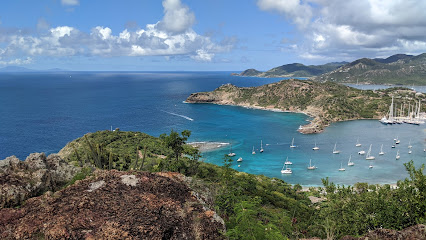
Devil's Bridge National Park
Witness the power of nature and poignant history at Antigua's Devil's Bridge National Park, a stunning coastal landmark.
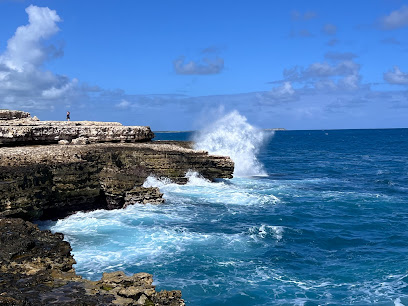
Sweet-Ts
Experience authentic Antiguan flavors at Sweet-Ts in Piccadilly, a local favorite known for delicious food and a welcoming atmosphere.
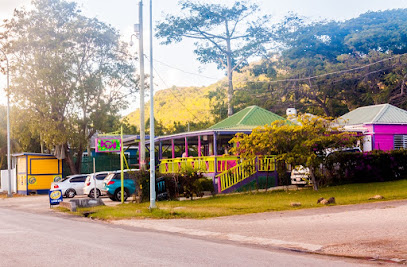
Galleon Beach
Discover the stunning beauty of Galleon Beach in Antigua, a tropical paradise perfect for relaxation and adventure amidst pristine sands and clear waters.
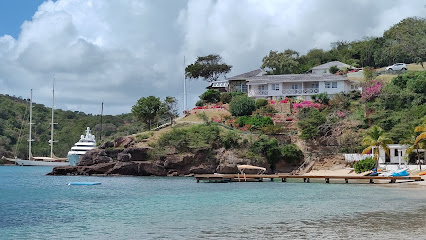
Pigeon Point Beach
Discover Antigua's Pigeon Point Beach: golden sands, crystal waters, and vibrant culture await in this Caribbean paradise.
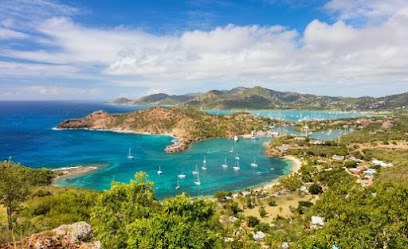
Antigua Yacht Club Marina & Resort
Experience luxury and adventure at the Antigua Yacht Club Marina & Resort, nestled in the stunning Falmouth Harbour, Antigua.

The Blockhouse
Discover The Blockhouse at Shirley's Heights, a historical site in Antigua offering stunning views and a glimpse into the island's rich colonial past.
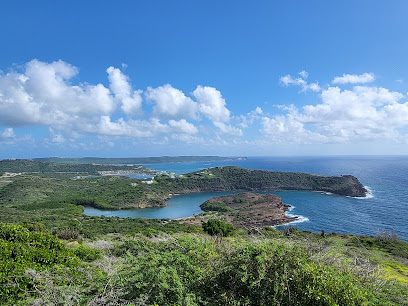
VC Bird Monument
Honoring Antigua's first Prime Minister, Sir Vere Cornwall Bird, with a prominent monument in the heart of St. John's.
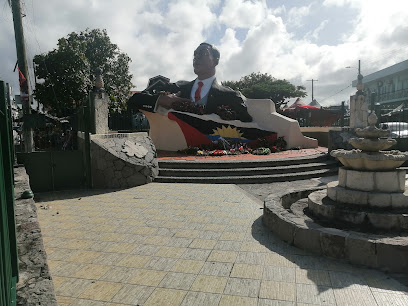
Dickenson Bay Beach
Experience Antigua's iconic coastline at Dickenson Bay Beach: white sands, turquoise waters, vibrant activities, and stunning sunsets await!
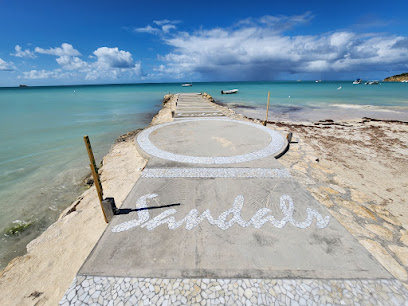
Museum of Antigua and Barbuda
Explore the rich history and vibrant culture of Antigua and Barbuda at the Museum of Antigua and Barbuda, a must-visit for every traveler.
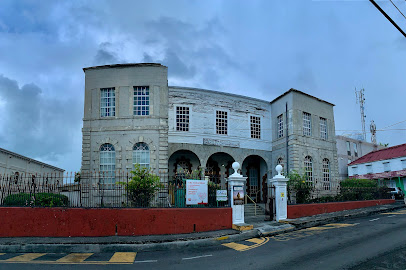
Dow's Hill Interpretation Centre
Discover Antigua's maritime history at Dow's Hill Interpretation Centre, a captivating journey through the island's past in breathtaking Nelson's Dockyard.
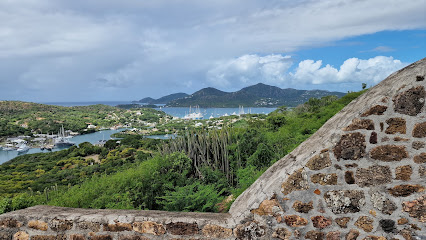
Fort James
Discover the captivating history and stunning views at Fort James, a prominent historical landmark in St. John's, Antigua.
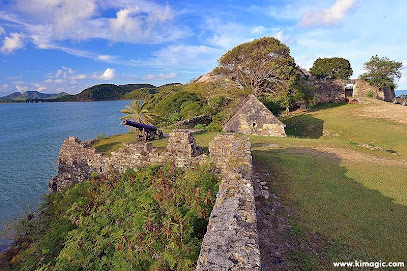
Unmissable attractions to see
Nelson's Dockyard
Explore Antigua's Nelson's Dockyard: A UNESCO World Heritage Site, maritime history, Georgian architecture, and Caribbean charm await!
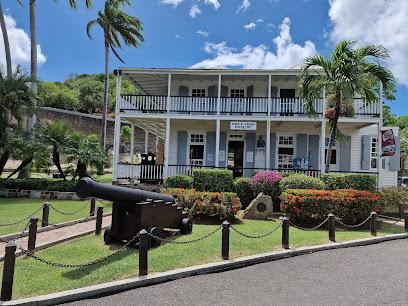
Stingray City Antigua
Swim, snorkel, and interact with gentle stingrays in their natural habitat at Stingray City Antigua, a unique Caribbean experience.
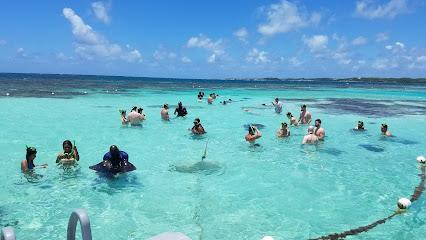
Devil's Bridge National Park
Witness the raw power of nature at Devil's Bridge National Park, a dramatic coastal landmark sculpted by the Atlantic Ocean in Antigua.
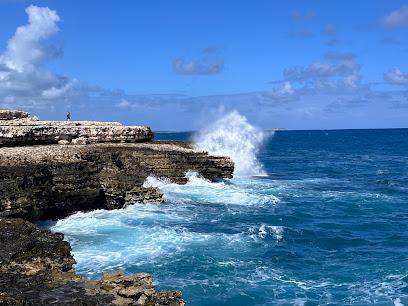
Sir Vivian Richards Stadium
A modern cricket stadium in Antigua, named after the legendary Sir Vivian Richards, hosting international matches and local events.
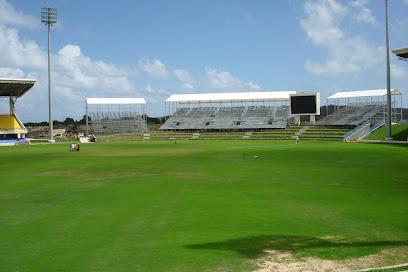
Galleon Beach
Discover tranquility at Galleon Beach in Antigua: pristine sands, calm waters, and stunning views await in this Caribbean paradise.
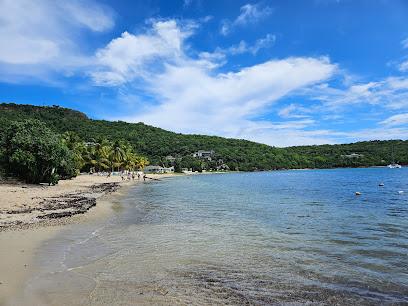
Pigeon Point Beach
Discover Antigua's serene Pigeon Point Beach: Calm waters, soft sands, and a perfect blend of relaxation and Caribbean charm.
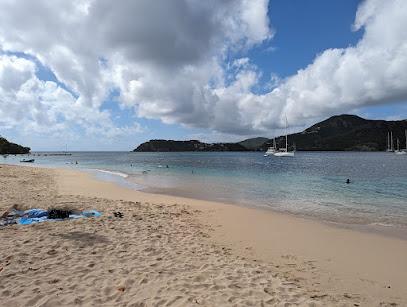
The Blockhouse
Explore The Blockhouse in Antigua: a historic fort with stunning views, offering a glimpse into the island's colonial past and natural beauty.
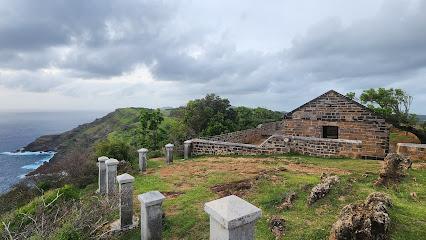
Dickenson Bay Beach
Experience the beauty of Antigua at Dickenson Bay Beach: white sands, turquoise waters, water sports, beachfront dining, and stunning sunsets.
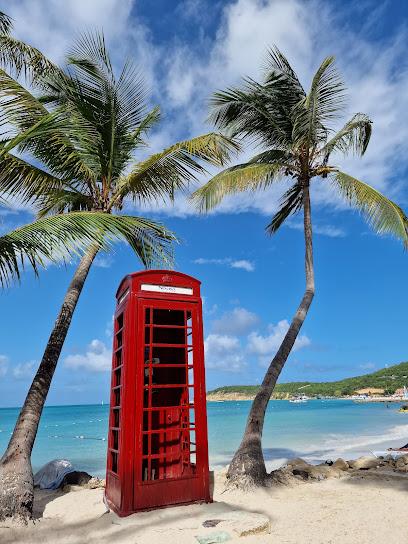
Long Bay Beach
Discover Antigua's serene Long Bay Beach: Calm waters, soft sands, and vibrant marine life await in this tranquil Caribbean paradise.
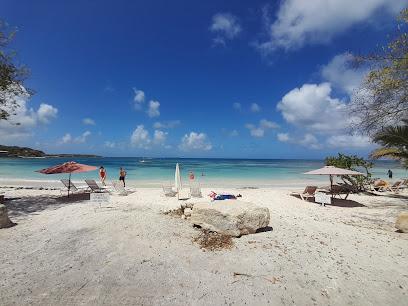
Museum Of Antigua & Barbuda
Discover Antigua & Barbuda's history: from Arawak settlements & colonial rule to independence, all within St. John's oldest building.
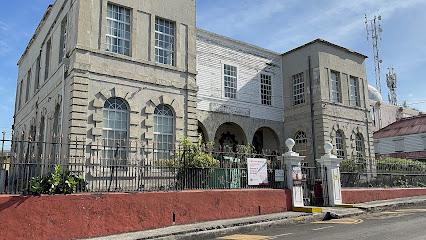
Betty's Hope Historic Sugar Plantation
Discover Antigua's colonial past at Betty's Hope, a historic sugar plantation with restored windmills and poignant reminders of its complex legacy.
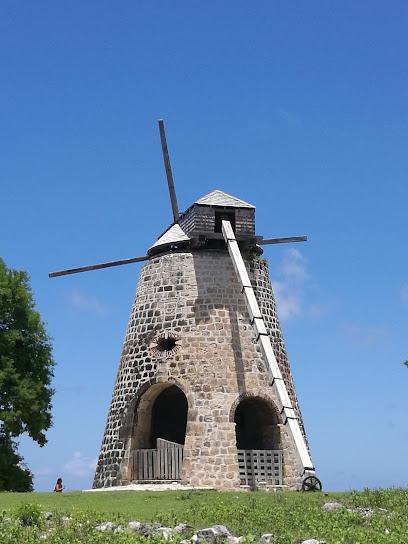
Saint John's Cathedral
Discover the resilient beauty of St John's Cathedral, a historic landmark showcasing Antigua's architectural and cultural heritage.
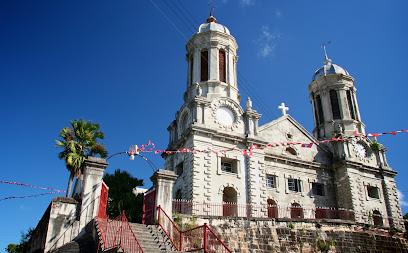
Dow's Hill Interpretation Centre
Discover Antigua's captivating history and breathtaking views at Dow's Hill Interpretation Centre, nestled in Nelson's Dockyard National Park.
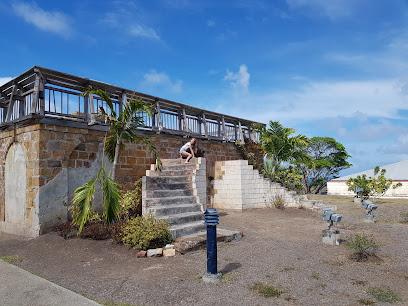
Darkwood Beach
Discover Darkwood Beach: Antigua's hidden gem with pristine sands, calm waters, and breathtaking views. Perfect for a tranquil escape.
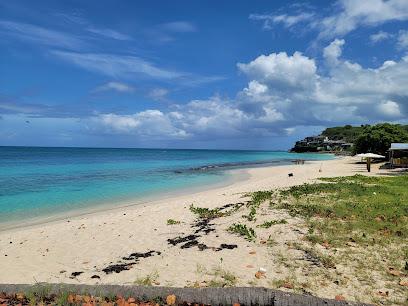
Nicole's Table - Caribbean Cooking Classes
Immerse yourself in Caribbean flavors with hands-on cooking classes at Nicole's Table, overlooking the stunning Caribbean Sea.
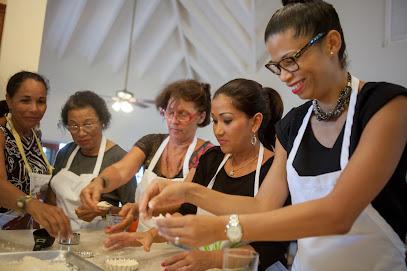
Essential places to dine
Sweet-Ts
Discover Sweet-Ts in Piccadilly - where delicious meets affordable in a cozy dining atmosphere perfect for all travelers.
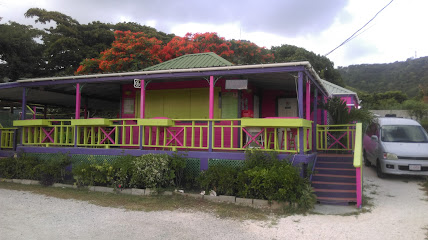
Trappas
Experience authentic Caribbean flavors at Trappas on Dockyard Drive – where every meal is a celebration of local culture and cuisine.
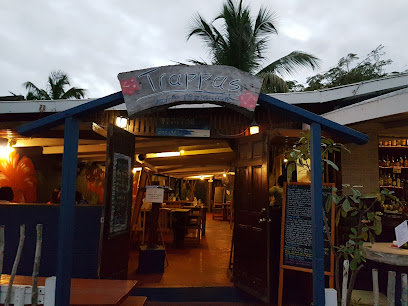
Cloggy's
Discover Cloggy's at Catamaran Marina - where exquisite flavors meet breathtaking waterfront views in Falmouth, Antigua.
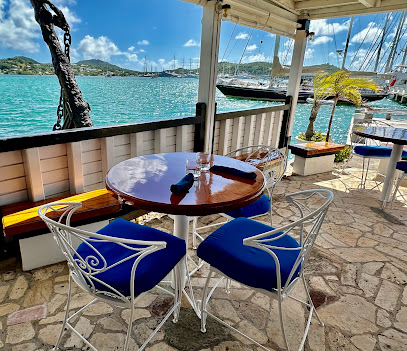
Road House Restaurant And Bar
Discover delicious Caribbean cuisine at Road House Restaurant and Bar in Newfield, Antigua - a culinary gem offering vibrant flavors and a welcoming atmosphere.
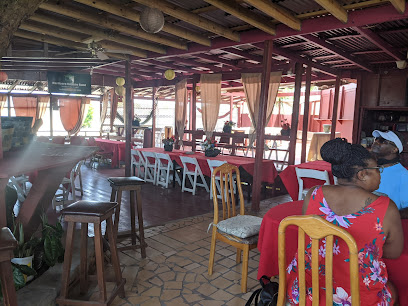
Flatties Flame Grill
Experience Caribbean cuisine at its best with grilled specialties and stunning harbor views at Flatties Flame Grill.
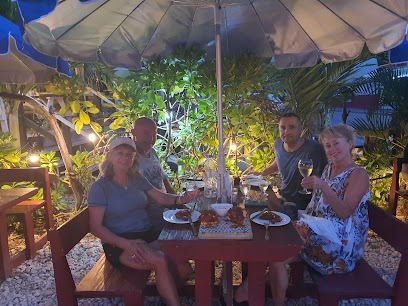
Club House
Discover exquisite sushi delights at the Club House in Falmouth - where fresh ingredients meet innovative culinary artistry.
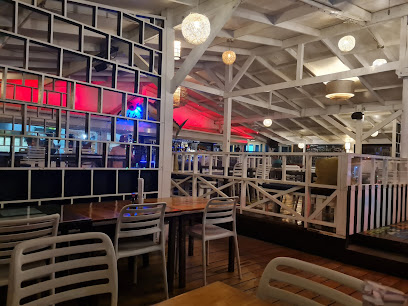
Abracadabra
Discover Abracadabra: A magical blend of authentic Italian cuisine and vibrant nightlife in English Harbour.
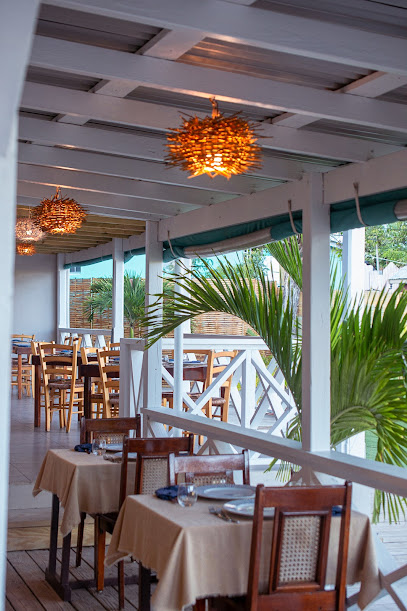
Boom Restaurant
Experience exquisite Caribbean dining at Boom Restaurant in English Harbour - where local flavors meet stunning waterfront views.
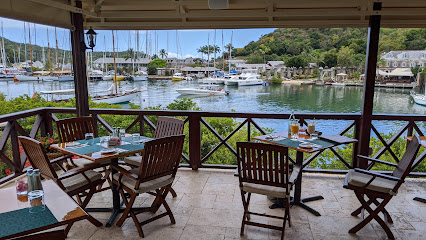
Indian Summer
Experience authentic Indian cuisine at Indian Summer on Dockyard Drive; where every dish is crafted with passion and tradition.
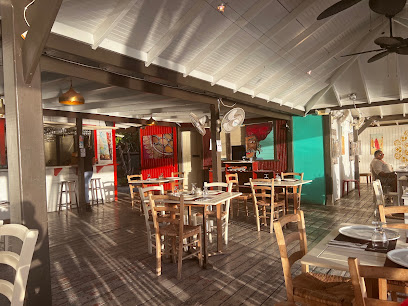
Incanto
Experience authentic Italian cuisine at Incanto in English Harbour, where stunning views meet delectable dishes crafted from fresh local ingredients.
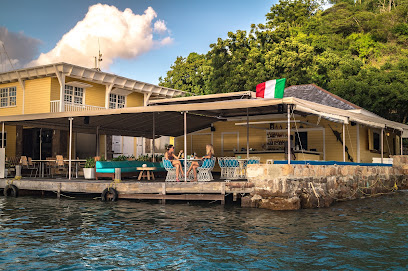
Los Cabrones - Antigua
Discover the vibrant flavors of Mexico at Los Cabrones in Antigua – where authentic cuisine meets stunning harbor views.
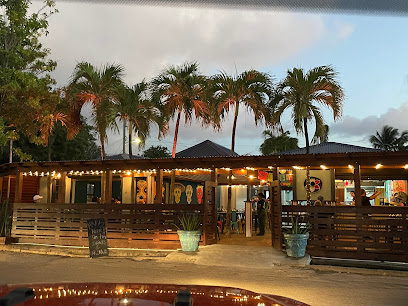
Colibri Bistro Bar Lounge
Discover culinary excellence at Colibri Bistro Bar Lounge in Antigua; savor local flavors amidst stunning views and vibrant nightlife.
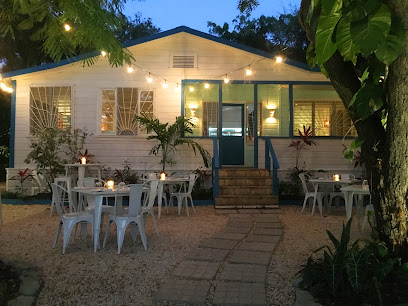
Roti Sue
Discover authentic Antiguan flavors at Roti Sue, where every bite tells a story of tradition and culinary excellence.
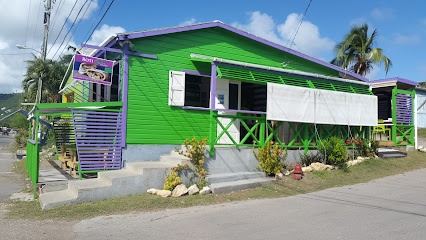
La Brasserie d'Antigua
Experience the flavors of France in Antigua at La Brasserie d'Antigua – where culinary delight meets stunning harbor views.
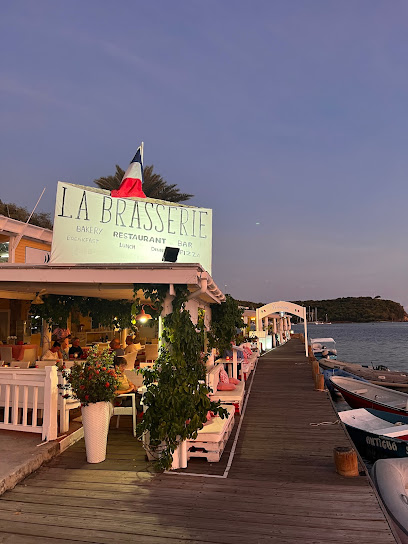
Five Senses Antigua
Experience the exquisite flavors of Asia at Five Senses Antigua - where culinary artistry meets warm hospitality.
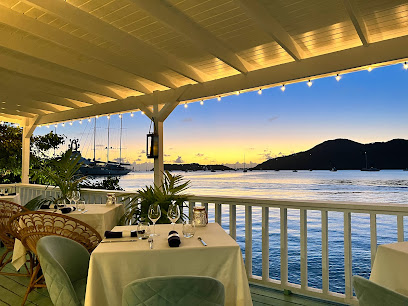
Markets, malls and hidden boutiques
C.E.Bailey Supermarket
Explore the vibrant flavors of Piccadilly at C.E. Bailey Supermarket, your one-stop shop for local and international grocery delights.
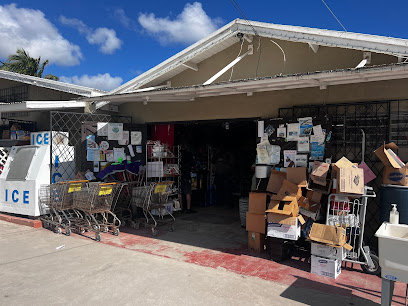
Carib Bean Coffee Roasters
Experience the rich flavors of the Caribbean at Carib Bean Coffee Roasters, a must-visit destination for coffee enthusiasts in Falmouth.
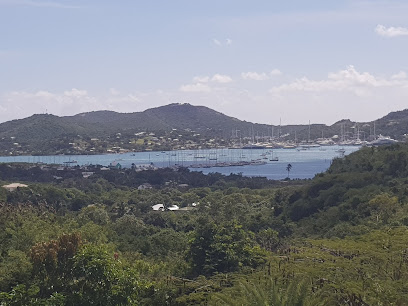
306 Antigua
Explore 306 Antigua, the ultimate destination for unique home goods and gifts that embody the spirit of Caribbean craftsmanship.
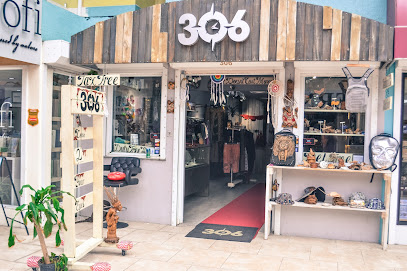
Exotic Antigua
Explore Exotic Antigua – a unique clothing store in St. John's filled with vibrant apparel inspired by Caribbean culture.
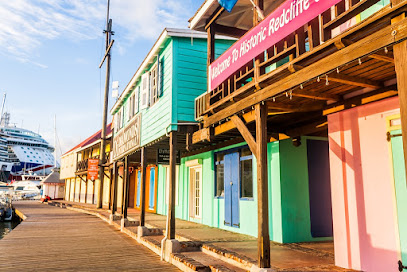
The Posh Pirate Antique Store
Explore timeless treasures at The Posh Pirate Antique Store in Liberta, where every item holds a story and every visit is a unique adventure.
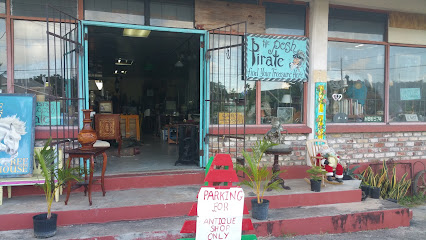
BALLOON OCCASIONS Decorating Service And Party Store
Discover Balloon Occasions in Pares, Antigua, for vibrant party supplies and balloon decorations to elevate your celebrations in paradise.
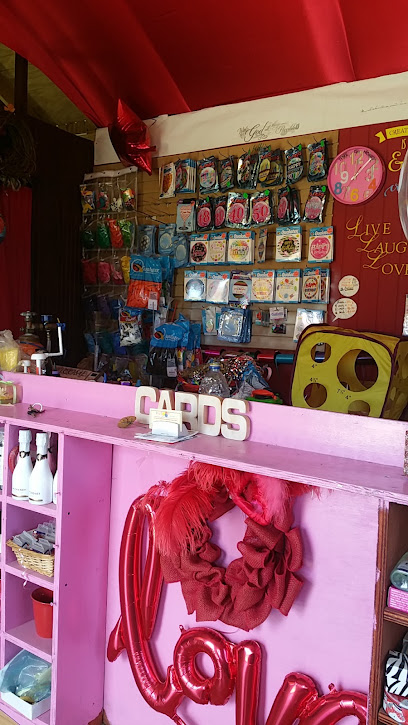
The Cork & Basket
Discover a delightful selection of wines and gourmet provisions at The Cork & Basket, English Harbour's premier wine store.
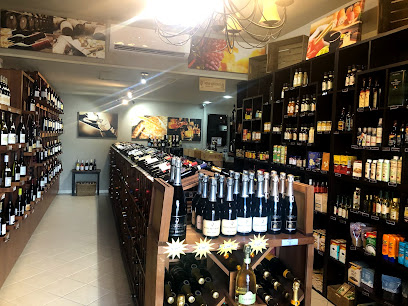
BOSSY MINI MART
Discover BOSSY MINI MART, your go-to grocery store for local and international snacks, essentials, and friendly service in the heart of the community.

Sea Island Trading Antigua
Explore the charm of Antigua at Sea Island Trading, your destination for unique home goods and local crafts that capture the island's spirit.
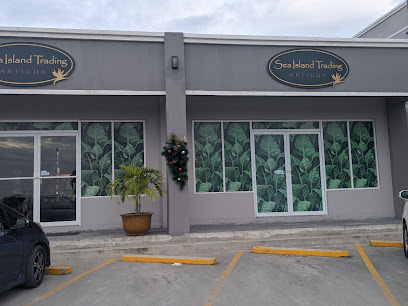
Genny Supermarket
Discover local flavors and essentials at Genny Supermarket, your one-stop grocery shop in the heart of Antigua.
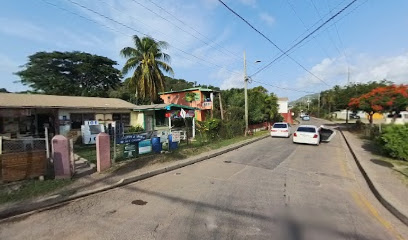
The Cotton House
Discover unique Caribbean-inspired clothing at The Cotton House in Piccadilly, where local craftsmanship meets vibrant style.
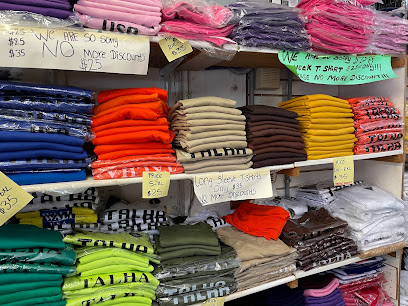
Rhythm of Blue Art Gallery
Explore the artistic heart of Antigua at Rhythm of Blue Art Gallery, a unique blend of local artistry and memorable souvenirs.
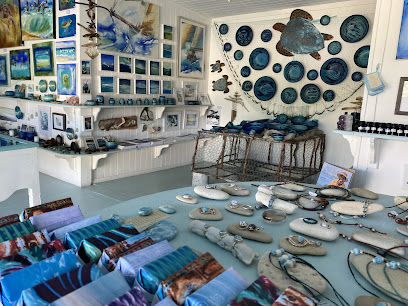
Britt Shop Aeropuerto Antigua
Explore Britt Shop at Antigua's airport for unique souvenirs, artisan chocolates, and local crafts to cherish your Caribbean experience.
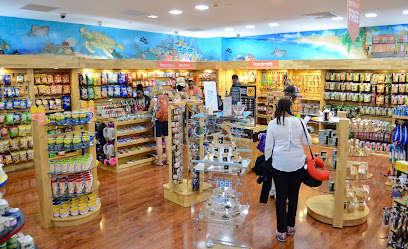
Saute268
Discover Saute268 in Falmouth, your go-to health food store for organic delights, energizing smoothies, and a commitment to wellness during your Antiguan adventure.
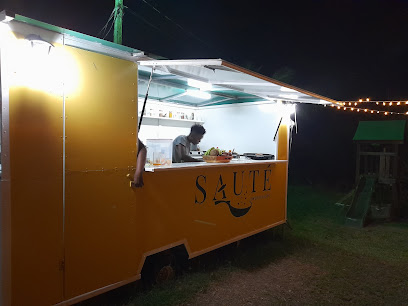
Bold Fashion Boutique
Explore Bold Fashion Boutique in English Harbour for exclusive clothing, accessories, and personalized fashion experiences that celebrate your unique style.
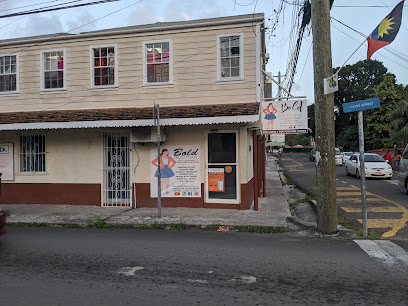
Essential bars & hidden hideouts
Sweet-Ts
Experience the authentic tastes of the Caribbean at Sweet-Ts in Piccadilly, where delicious food meets an inviting atmosphere.
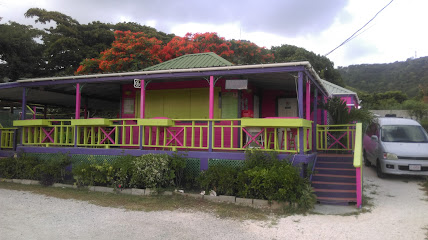
The Nest -Beach Bar, Antigua
Experience the laid-back charm of The Nest Beach Bar, where delicious food meets stunning ocean views in beautiful Antigua.
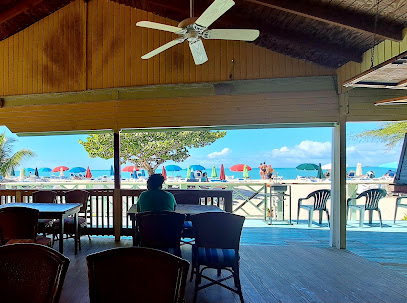
Cloggy's
Discover Cloggy's at Catamaran Marina for a culinary journey filled with Caribbean flavors and breathtaking waterfront views.
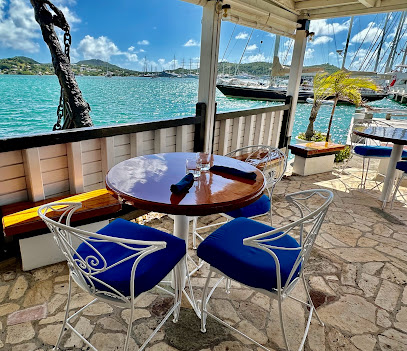
Club House
Discover Club House in Falmouth for exquisite sushi and steak dining with stunning marina views, perfect for a memorable culinary experience.
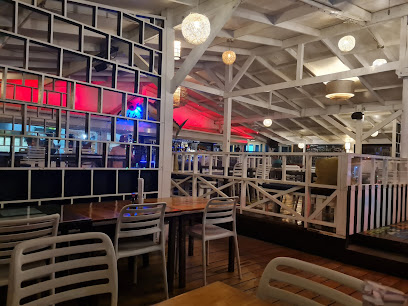
Cheers Antigua
Experience the lively flavors of Antigua at Cheers Antigua, a top grill restaurant in Heritage Quay, perfect for food lovers and social gatherings.
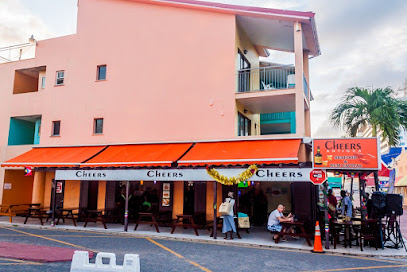
Kon Tiki Bar and Grill
Experience the vibrant flavors of the Caribbean at Kon Tiki Bar and Grill, a must-visit spot in St. John's for delicious food and stunning views.
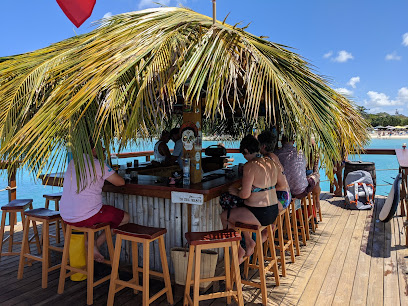
Colibri Bistro Bar Lounge
Discover the vibrant charm of Colibri Bistro Bar Lounge in Antigua, where exquisite cuisine meets a lively bar atmosphere for an unforgettable experience.
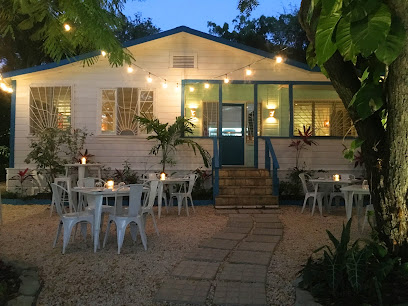
Loose Cannon Beach Bar
Experience the best of coastal dining at Loose Cannon Beach Bar, where exquisite flavors meet stunning ocean views in English Harbour.
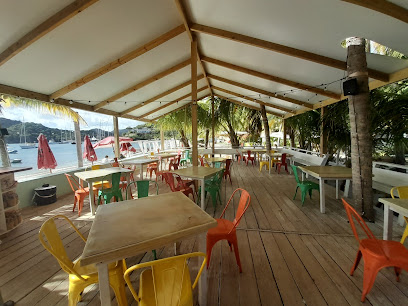
Garrot Blacks Bar & Lounge
Discover the lively ambiance and exceptional cocktails at Garrot Blacks Bar & Lounge in English Harbour, the ideal spot for nightlife in Antigua.
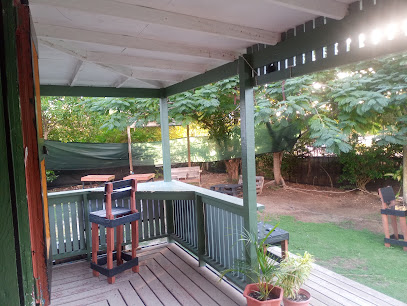
Lucky Eddi's Antigua Sports Bar and Restaurant
Discover the lively atmosphere of Lucky Eddi's Sports Bar and Restaurant in English Harbour, where delicious food meets unforgettable moments.
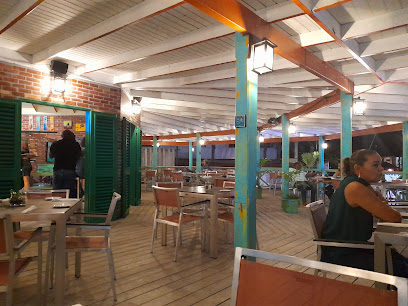
BAR-B'S RESTAURANT & BAR
Experience the vibrant flavors of Antigua at BAR-B'S RESTAURANT & BAR, where delicious local dishes meet stunning dockyard views.
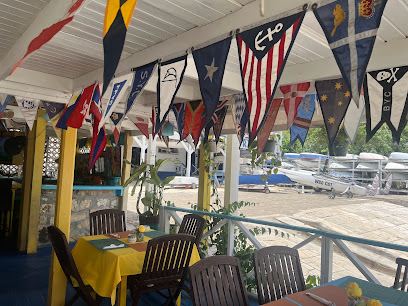
The Lime
Experience the lively nightlife at The Lime in English Harbour, where vibrant cocktails and great music create unforgettable moments.
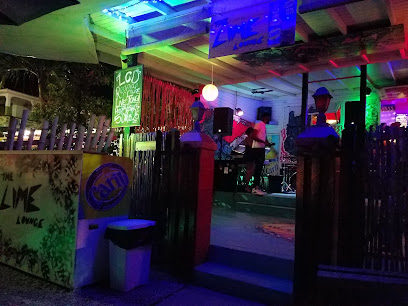
CHRISTIAN SUNSHINE BAR
Experience the vibrant atmosphere and delightful flavors at Christian Sunshine Bar in Piggotts, a perfect spot for relaxation and socializing in Antigua.
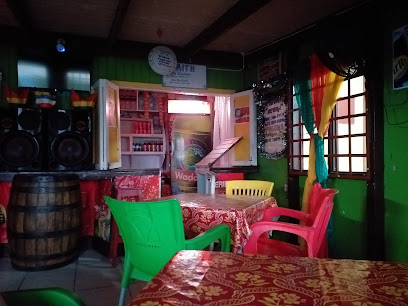
That's Life
Discover the flavors of the Caribbean at That's Life in Falmouth Harbour, where exceptional grilled dishes meet stunning waterfront views.
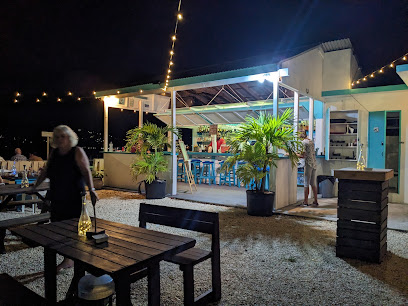
Local Phrases
-
- HelloWa gwan
[wah gwan] - GoodbyeLater
[lay-ter] - YesYah
[yah] - NoNah
[nah] - Please/You're welcomePliz
[pleez] - Thank youTank yu
[tank yoo] - Excuse me/SorrySarry
[sar-ree] - How are you?How yu duh?
[how yoo doo] - Fine. And you?Irie. An yu?
[eye-ree. an yoo] - Do you speak English?Yu talk English?
[yoo talk english] - I don't understandMi na kno
[mee nah noh]
- HelloWa gwan
-
- I'd like to see the menu, pleaseMi wah si di menu, pliz
[mee wah see dee men-yoo, pleez] - I don't eat meatMi na eat meat
[mee nah eet meet] - Cheers!Cheers!
[cheers] - I would like to pay, pleaseMi wah pay, pliz
[mee wah pay, pleez]
- I'd like to see the menu, pleaseMi wah si di menu, pliz
-
- Help!Help!
[help] - Go away!Gweh!
[gweh] - Call the Police!Call de Police!
[call dee police] - Call a doctor!Call a docta!
[call ah doctah] - I'm lostMi lost
[mee lost] - I'm illMi sick
[mee sick]
- Help!Help!
-
- I'd like to buy...Mi wah buy...
[mee wah buy] - I'm just lookingMi jus a look
[mee just ah look] - How much is it?How much dis?
[how much diss] - That's too expensiveDat too dear
[dat too deer] - Can you lower the price?Yu cud mek di price lef?
[yoo could make dee price left]
- I'd like to buy...Mi wah buy...
-
- What time is it?Wa time it be?
[wah time it bee] - It's one o'clockIt one o'clock
[it one o'clock] - Half past (10)Half pass ten
[half pass ten] - MorningMawnin
[mawn-in] - AfternoonAftanoon
[aftah-noon] - EveningEvenin
[even-in] - YesterdayYestadeh
[yes-tah-deh] - TodayToday
[toh-day] - TomorrowTomorrah
[tom-or-rah] - 1One
[wun] - 2Two
[too] - 3Tree
[tree] - 4Fo'
[foh] - 5Fie
[fie] - 6Six
[siks] - 7Seven
[sev-en] - 8Eight
[ayt] - 9Nine
[nine] - 10Ten
[ten]
- What time is it?Wa time it be?
-
- Where's a/the...?Weh de...deh?
[weh dee...deh] - What's the address?Wa de address?
[wah dee address] - Can you show me (on the map)?Yu cud show me (pan di map)?
[yoo could show me (pan dee map)] - When's the next (bus)?When de nex (bus)?
[when dee neks (bus)] - A ticket (to ....)A tiket (to ....)
[ah ticket (to)]
- Where's a/the...?Weh de...deh?
History of Falmouth
-
Falmouth, located on the southern coast of Antigua, was founded in the early 18th century. Named after the port town of Falmouth in England, it quickly became a crucial harbor for British naval operations in the Caribbean. The town's natural deep-water harbor made it an ideal location for docking and repairing ships, leading to its rapid growth and development.
-
During the 18th and 19th centuries, Falmouth played a significant role in Antigua's thriving sugar industry. The surrounding fertile lands were transformed into vast sugar plantations, worked by enslaved Africans. The town became an export hub for sugar, molasses, and rum, contributing significantly to the island's economy. The remnants of sugar mills and plantation houses still dot the landscape, serving as poignant reminders of this era.
-
One of Falmouth's most notable historical landmarks is Nelson's Dockyard, a UNESCO World Heritage site. This Georgian-era naval dockyard was named after Admiral Horatio Nelson, who served in the Caribbean during the late 18th century. The dockyard was essential for maintaining the British Royal Navy's fleet and protecting British interests in the region. Today, Nelson's Dockyard is a well-preserved historic site featuring restored buildings, museums, and exhibits that offer a glimpse into Antigua's maritime past.
-
Falmouth, like much of the Caribbean, was deeply affected by the transatlantic slave trade. Enslaved Africans were brought to Antigua to work on the sugar plantations, and Falmouth was one of the key ports of entry. The town's history is intertwined with the stories of resistance and resilience of the enslaved people. The abolition of slavery in 1834 marked a significant turning point, leading to the gradual decline of the plantation economy and the transformation of Falmouth's social landscape.
-
Following the abolition of slavery, Falmouth underwent significant changes. Freedmen established their own communities and engaged in subsistence farming, fishing, and small-scale trade. The town's economy diversified, and new social structures emerged. The historic churches, schools, and community centers built during this period still stand as symbols of the town's resilience and cultural heritage.
-
Today, Falmouth is a vibrant community that harmoniously blends its rich history with modern amenities. The town has become a popular destination for tourists seeking a mix of historical exploration and natural beauty. Falmouth Harbour, with its marinas and waterfront restaurants, attracts yachting enthusiasts from around the world. Annual events like the Antigua Sailing Week highlight the town's ongoing maritime legacy, making Falmouth a lively and dynamic part of Antigua and Barbuda.
Falmouth Essentials
-
Falmouth is located on the southern coast of Antigua, part of the twin-island nation of Antigua and Barbuda. The main international gateway is V.C. Bird International Airport (ANU) in St. John's, approximately 20 kilometers from Falmouth. From the airport, you can take a taxi, which is the most convenient option and usually takes around 30 minutes. Alternatively, you can rent a car at the airport to explore the island at your own pace.
-
Falmouth and the surrounding areas are relatively easy to navigate. Taxis are readily available and can be hailed on the street or arranged through your accommodation. Rental cars are also a popular option for tourists who prefer more flexibility. Public buses operate on fixed routes and are an affordable way to get around, though they can be less reliable in terms of schedule. Be aware that driving is on the left-hand side of the road.
-
The official currency of Antigua and Barbuda is the Eastern Caribbean Dollar (XCD). U.S. Dollars are widely accepted, but you may receive change in XCD. Credit cards are commonly accepted in hotels, restaurants, and larger shops, but it's advisable to carry some cash for smaller establishments and local markets. ATMs are available in Falmouth, but it’s wise to have some cash on hand as they can occasionally run out of money.
-
Falmouth is generally safe for tourists, but it's important to take standard precautions. Petty theft and opportunistic crimes can occur, so keep an eye on your belongings and avoid displaying valuables. Areas like English Harbour and Nelson’s Dockyard are popular tourist spots and generally safe, but it's advisable to avoid poorly lit and isolated areas at night. Always stay vigilant and aware of your surroundings.
-
In case of an emergency, dial 911 for police, fire, or medical assistance. The nearest hospital is Mount St. John's Medical Centre in St. John's, about 30 minutes away by car. For minor health issues, there are pharmacies in Falmouth where you can purchase over-the-counter medications. It's recommended to have travel insurance that covers medical emergencies and to carry a copy of your insurance policy.
-
Fashion: Do dress casually and comfortably, but avoid overly revealing attire, especially in more traditional areas. Religion: Do respect local customs and traditions. When visiting churches, dress modestly. Public Transport: Do be respectful and courteous to drivers and other passengers. Don't eat or drink on public buses. Greetings: Do greet people with a polite 'Good morning' or 'Good afternoon.' A handshake is also appropriate. Eating & Drinking: Do try local dishes and beverages. Don't refuse hospitality, as it may be considered impolite.
-
To experience Falmouth like a local, visit the local markets and try fresh produce and traditional Antiguan dishes. Engage with locals, who are often friendly and willing to share stories about the area. Don’t miss the weekly 'Shirley Heights Lookout' event for live music, BBQ, and stunning views of the sunset. Explore Nelson's Dockyard, a UNESCO World Heritage site, for a glimpse into the island's maritime history. For a unique experience, take a sailing tour around the coast.
Trending Landmark in Falmouth
-
Heritage Quay Complex
-
Nelson's Dockyard
-
Redcliffe Quay
-
Shirley Heights Lookout
-
Devil's Bridge National Park
-
Sweet-Ts
-
Galleon Beach
-
Pigeon Point Beach
-
Antigua Yacht Club Marina & Resort
-
The Blockhouse
-
VC Bird Monument
-
Dickenson Bay Beach
-
Museum of Antigua and Barbuda
-
Dow's Hill Interpretation Centre
-
Fort James
Nearby Cities to Falmouth
-
Things To Do in Liberta
-
Things To Do in English Harbour
-
Things To Do in All Saints
-
Things To Do in Freetown
-
Things To Do in Bolands
-
Things To Do in Jolly Harbour
-
Things To Do in Codrington
-
Things To Do in St. John's
-
Things To Do in Dickenson Bay
-
Things To Do in Woodlands
-
Things To Do in Gingerland
-
Things To Do in Newcastle
-
Things To Do in Charlestown
-
Things To Do in Cotton Ground
-
Things To Do in Basseterre







